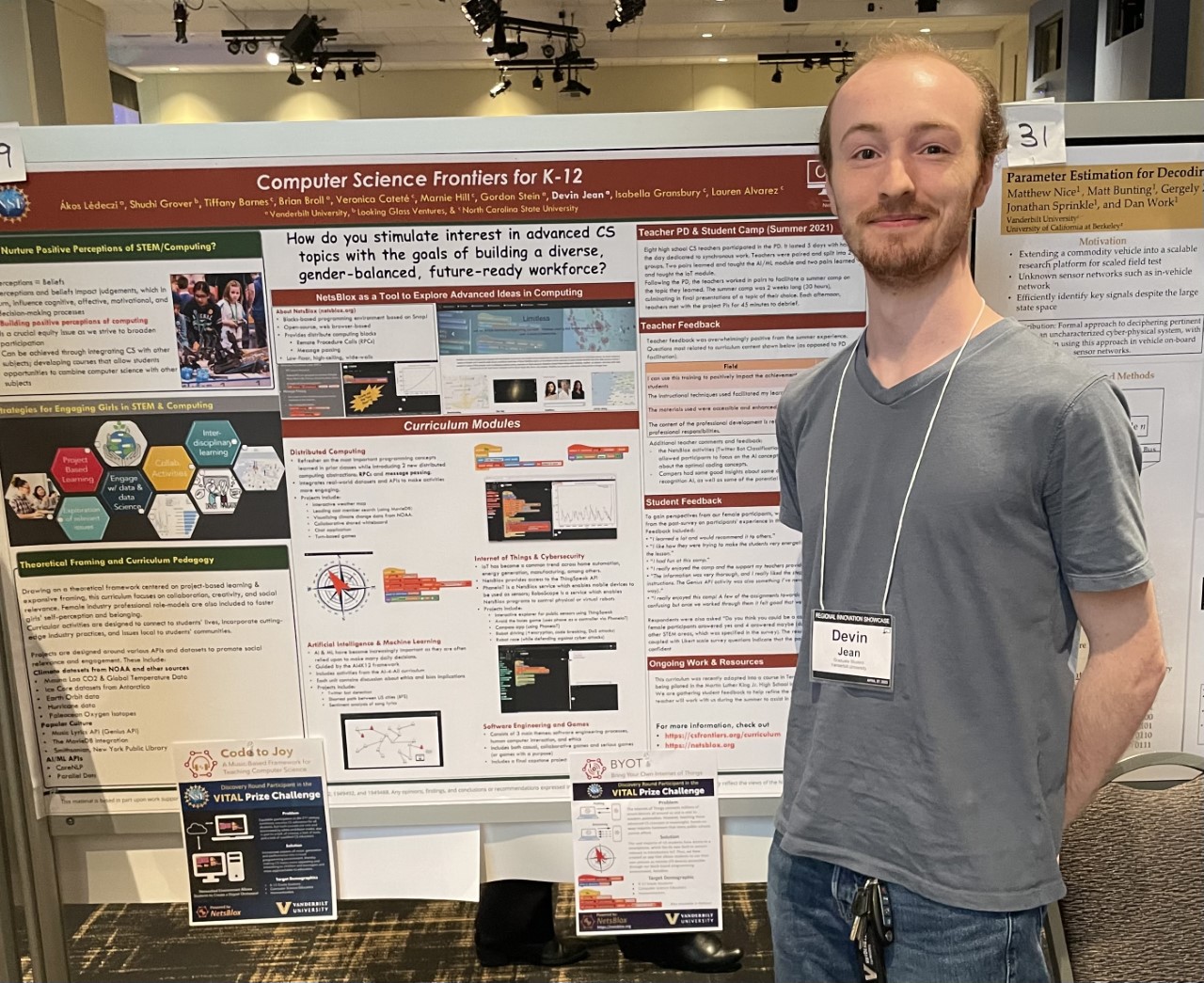Two multidisciplinary teams from a new joint initiative between Vanderbilt’s Department of Computer Science and Peabody College have advanced to the “discovery round” of the Visionary Interdisciplinary Teams Advancing Learning (VITAL) Prize Challenge sponsored by the U.S. National Science Foundation.

The teams from the LIVE Initiative are among 100 that have advanced in the Challenge, which empowers teams to develop innovative learning technologies for K-12 students. Vanderbilt’s two projects are BYOT: Bring Your Own Internet of Things and Code to Joy: A Music-Based Framework for Teaching Computer Science.
Both teams will utilize a successful block-based educational programming environment previously developed at Vanderbilt called NetsBlox, which introduced novel networking abstractions that have been shown to increase student engagement. Code to Joy seeks to enhance NetsBlox with high-quality music creation capabilities along three thrusts: developing a block-based library to support high-quality music creation; utilizing network connectivity to create collaborative musical interfaces; and creating curricular modules focused on learning programming concepts through interaction with music. The project is being supported by a Vanderbilt Seeding Success Grant.
BYOT is developing a mobile app called BYOT which allows middle and high school students to turn their phones into IoT devices that are accessible through NetsBlox. Students will be able to create highly engaging distributed programs that remotely access the sensors of their phones and create a customizable, interactive display on the phone screen. Students can create engaging projects, such as turning their phones into an XBox-like remote controller for educational robots that NetsBlox also supports.
The Code to Joy team is comprised of Computer Science Professor Akos Ledeczi; Alum Will Hedgecock, CS research scientist and musician; Education Professor Corbette Doyle; and Blair School of Music Professor Pascal Le Boeuf, a Grammy-nominated composer, jazz pianist, and electronic artist. The BYOT team is made up of Brian Broll, a research scientist and the chief architect of NetsBlox; Devin Jean, a third-year CS Ph.D. student; and high school CS teacher April Collins.
The LIVE Initiative focuses on consequential learning that leverages technology to meet the needs of healthy, socially integrated learning, participation and growth for students and workers at all levels.
The teams participating in the Challenge range from two to 10 members each and will now embark on the first phase of a process to advance use-inspired innovations to equitably improve learning outcomes for all students and broaden learner engagement, particularly for students from historically marginalized groups, according to NSF.
During the discovery round, these teams will receive training from NSF’s Innovation Corps (I-Corps™) program to support them through customer discovery activities, entrepreneurial education and mentoring, with the goal of reducing the time it takes to bring technologies from the laboratory to the marketplace. There will be a live pitch session on June 12 to determine which teams advance to the semi-final round.
The Challenge is made possible through a partnership between NSF and the Bill & Melinda Gates Foundation, Schmidt Futures and the Walton Family Foundation and administered by the global education nonprofit Digital Promise. It received over 300 submissions and a judging panel of over 50 leading experts across the domains of educational research, practice and technology as well as technology translation assisted in reviewing and ranking them.
Contact: Lucas Johnson, 615-343-0137
lucas.l.johnson@vanderbilt.edu